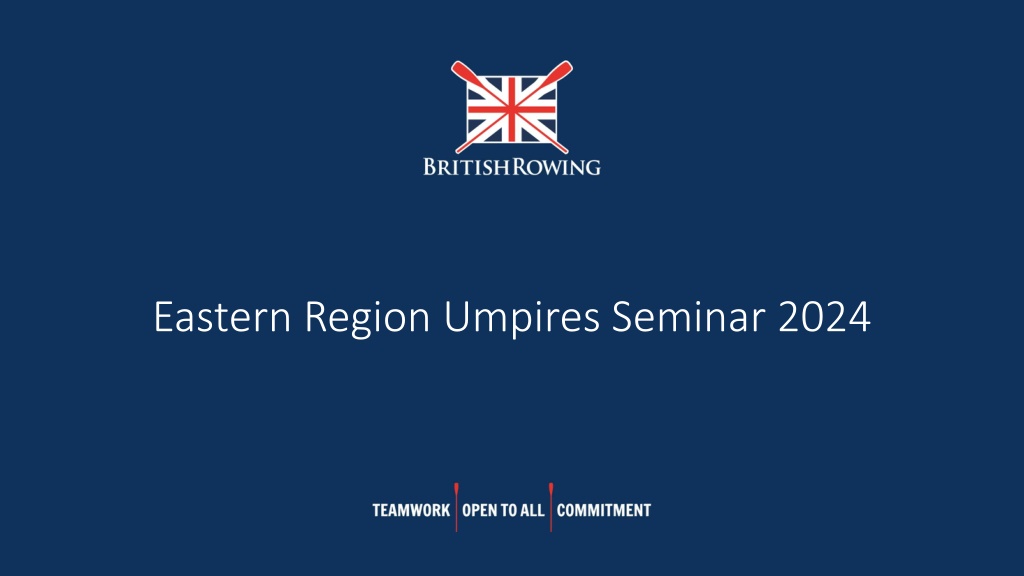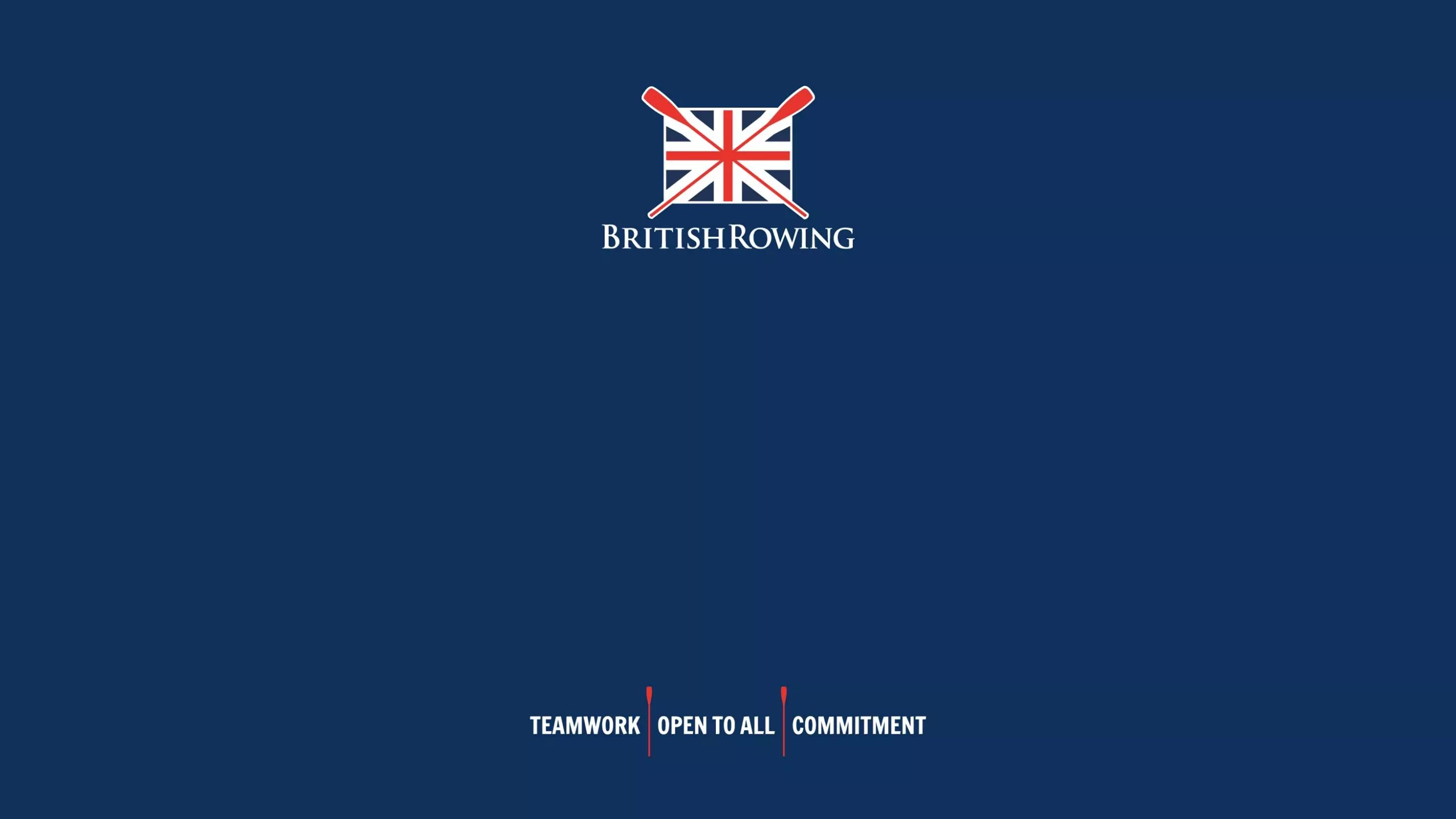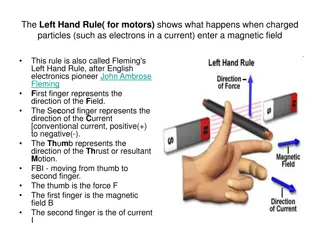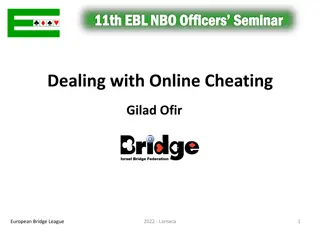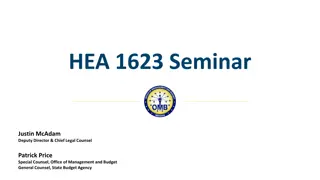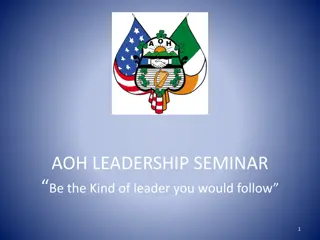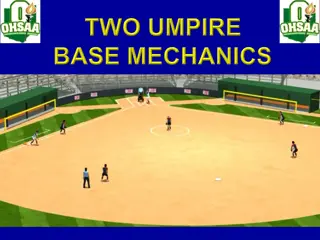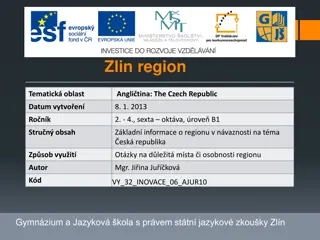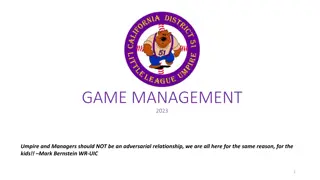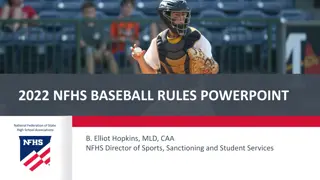Eastern Region Umpires Seminar 2024 Agenda and Rule Changes
This material provides an overview of the Eastern Region Umpires Seminar 2024, including the agenda items such as rule changes for 2024, online renewal processes, event communications, and discussions on effective communication methods while umpiring. It also includes notes on meeting umpiring activity requirements and the pros and cons of using radios for communication during events. Alternatives to radios and communication tips are also discussed.
Download Presentation

Please find below an Image/Link to download the presentation.
The content on the website is provided AS IS for your information and personal use only. It may not be sold, licensed, or shared on other websites without obtaining consent from the author. Download presentation by click this link. If you encounter any issues during the download, it is possible that the publisher has removed the file from their server.
E N D
Presentation Transcript
Agenda 1) 2) 3) 4) 5) 6) Welcome Rule changes 2024 Online Renewals Process Event communications why the radio might not always be best Weighing coxes, lightweights and juniors Scenarios for discussion/questions
Online Renewal Process (Dave Porter)
Notes Being a Race Committee Chair counts towards meeting the umpiring activity requirements but just being a member of a Race Committee does not count. Similarly launch driving, Race Control, Entries Secretary, commentary, timekeeping, Safety Adviser, Welfare Officer, RUC Rep., etc., do not count. Competitions that have been cancelled, for whatever reason, do not count towards meeting the activity requirement. There is no provision for an exceptional or conditional three-year renewal if the umpire does not meet the seminar requirement or the activity requirement. The umpire can appeal against a one-year renewal
Discussion What methods of communication are available to us when Umpiring?
Pros and Cons of the radio Pros Easy to use Quick and efficient Everybody can hear (if they re on the same channel) Cons Reliability Privacy
Alternatives to the radio Telephone call Message/WhatsApp group Face-to-face conversation
Communication top tips Consider if it is the most appropriate means of communication (e.g. emergency or forgotten lunch) Remember, radios are easily overheard WhatsApp groups can be excellent for disseminating information instantly and reducing impact of printed resources Sometimes a face-to-face conversation is best
Discussion How is your approach to conversations different when on Control Commission compared to the Start?
Discussion How should we speak with athletes/juniors/coxes when weighing them in?
Impact of weighing coxes and competitors on health What does the Science say? Within the UK Sport Eating Disorders in Sport: A guideline framework for practitioners working with high performance athletes , lightweight rowing was identified as a high risk sport for the development of eating disorders. Evidence suggests an increased risk of disordered eating in competitive compared to non-competitive rowers (Kraus & Holtman, 2018); and in lightweight rowers compared to open weight rowers (Gapin et al., 2013). Furthermore, research suggests that up to 50% of rowers present with symptoms of disordered eating. Disordered eating is also linked to increased rates of injury and lower bone mineral density (Lundy et al., 2022).
What can we do to mitigate risk? 1. No subjective comments concerning the weight or body composition of any member should be made by anyone, and those conducting/present should always be sensitive to the feelings of athletes and how they may respond to any comments concerning their body. When weighing takes place, it should be done in an area where no other individuals can see or hear the measurements except the person taking the measurements, with another appropriate adult present if the athlete is J18 and under. For accuracy and consistency, the same scales should be used every time for taking weight measurements, as different models and makes can vary in their results. Anyone registered to cox at a Competition or entering a weight-restricted category has to accept, before the entry is submitted to the Competition, that they are consenting to being weighed. Lightweight rowers or coxes, at their request, can be weighed at a Competition without being told or shown their weight. This may be relevant to individuals who have or have experienced eating disorders and who do not wish to know their weight. Anyone who is concerned that a rower or cox has an eating disorder should raise this as a safeguarding concern with the individual s club, or with the Event Welfare Officer. 2. 3. 4. 5. 6.
Discussion - what would you do? 1) A crew has not arrived for the start and it is 5 minutes until race time. You have called over the crews and announced the race. A crew sitting on the stakeboat are becoming agitated and ask you to find out what is going on and where their opposition are. You are on Control Commission. A coach approaches you aggressively during an event and starts shouting at you about the race that has just taken place. You are at an event and it s 2.30pm. You appear to have been forgotten in the lunch distribution. How could you rectify this? A cox arrives to be weighed and appears very uncomfortable, bordering on upset. An junior athlete approaches you at an event and discloses that their coach has been acting aggressively towards them, shouting and swearing at them because they didn t have a good row. 2) 3) 4) 5)
